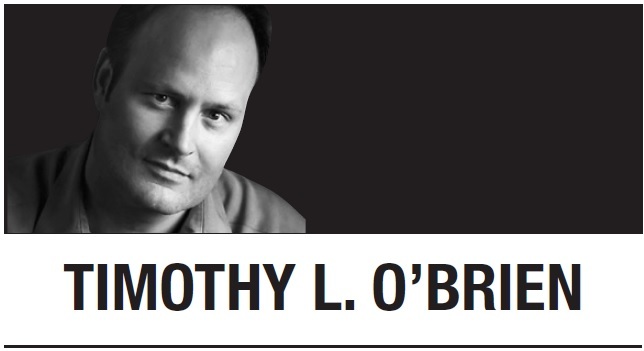
April Ryan, a veteran White House correspondent with American Urban Radio Networks and a political analyst for CNN, reported Tuesday afternoon that President Donald Trump is planning a major address on “race relations” in the US. The speech, Ryan said, is being written by Stephen Miller, the young Trump loyalist on the White House staff who has coaxed the president into approving policies like separating migrant children from their parents and incarcerating them at the Mexican border.
Other White House reporters haven’t confirmed that Trump plans to deliver a major speech on race or that Miller, who has a history of espousing white nationalism, is writing one. It’s also a measure of Trump’s leadership that the possibility of addressing the nation amid the George Floyd protests remains a matter of speculation. But the chances he’d offer an address that heals rather than divides seems unlikely. We already know quite a bit about the president’s attitudes toward racial equity, given that he’s spent decades trafficking in racism and race-baiting.
But to understand more, I phoned Randal Pinkett, an African American businessman who won season four of “The Apprentice” in 2005 and then went to work for the Trump Organization. I asked him what he thought of the possibility that Trump and Miller might team up for a speech on race at this pivotal moment for communities of color.
“It doesn’t surprise me but it saddens me,” Pinkett said. “Stephen Miller has just as little appreciation for the root causes of what we’re facing as Donald does. This is perhaps the signature moment when Donald needs to come to the center. This is a moment that demands leadership that can unite us and bring us together. Anything other than that means it would be better for him to remain silent.”
Trump isn’t prone to remaining silent, and don’t expect him to be a healer. Remember, the reality TV president once proposed producing a season of “The Apprentice” that would pit white contestants against black contestants.
Trump said on his own syndicated radio show in 2005 that although the idea was “fairly controversial,” he wanted to host “a team of successful African Americans versus a team of successful whites. Whether people like that idea or not, it is somewhat reflective of our very vicious world.”
In early 2016, several months before Trump was elected president, BuzzFeed News unearthed an audio recording of an interview Trump conducted with radio and TV host Howard Stern in which he also explored the possibility of airing white-against-black competition on “The Apprentice.”
“On ‘The Apprentice’ there was a concept, OK, thrown out by some person, nine blacks against nine whites,” Trump said. “And it would be nine blacks against nine whites, all highly educated, very smart, strong, beautiful. Do you like it?”
Stern said he did. Stern’s African American co-host, Robin Quivers, had a different response: “Well, I think you’re gonna have a riot.”
“It would be the highest-rated show on television,” Trump replied.
Stern prodded the future president for more information: “Very dark blacks, or light-skinned blacks?”
“Assortment, against whites,” Trump said, adding that he wanted all of the white contestants to be blondes.
“Wouldn’t that set off a racial war?” Stern asked.
“Actually, I don’t think it would,” responded Trump. “I think it would be handled very beautifully by me. Because, as you know, I’m very diplomatic. … Also, I think you’d have 35 million people a night watching.”
Trump’s idea never materialized, but he’s now presiding over the reality of a nation splintered by racial protests sparked by the death of a black man, George Floyd, at the hands of a white police officer in Minneapolis. Millions are watching around the globe, and Trump’s most visible responses have been predictably blunt: using force to disband protesters, encouraging governors to do the same, and threatening to send soldiers into the streets. Trump’s inability to do otherwise is familiar to Pinkett.
“I had the benefit of not being just a contestant on ‘The Apprentice’ but having worked at the Trump Organization, too,” he told me. “I saw the utter and complete lack of not only racial diversity but ethnic and gender diversity as well. Donald’s blind spots block out anything that’s different than whatever he holds to be true. It also creates enormous blind spots for understanding other people’s points of view and empathy for how they live.”
Timothy L. O’Brien
Timothy L. O’Brien is a senior columnist for Bloomberg Opinion. -- Ed.
(Bloomberg)








![[Today’s K-pop] Blackpink’s Jennie, Lisa invited to Coachella as solo acts](http://res.heraldm.com/phpwas/restmb_idxmake.php?idx=644&simg=/content/image/2024/11/21/20241121050099_0.jpg)